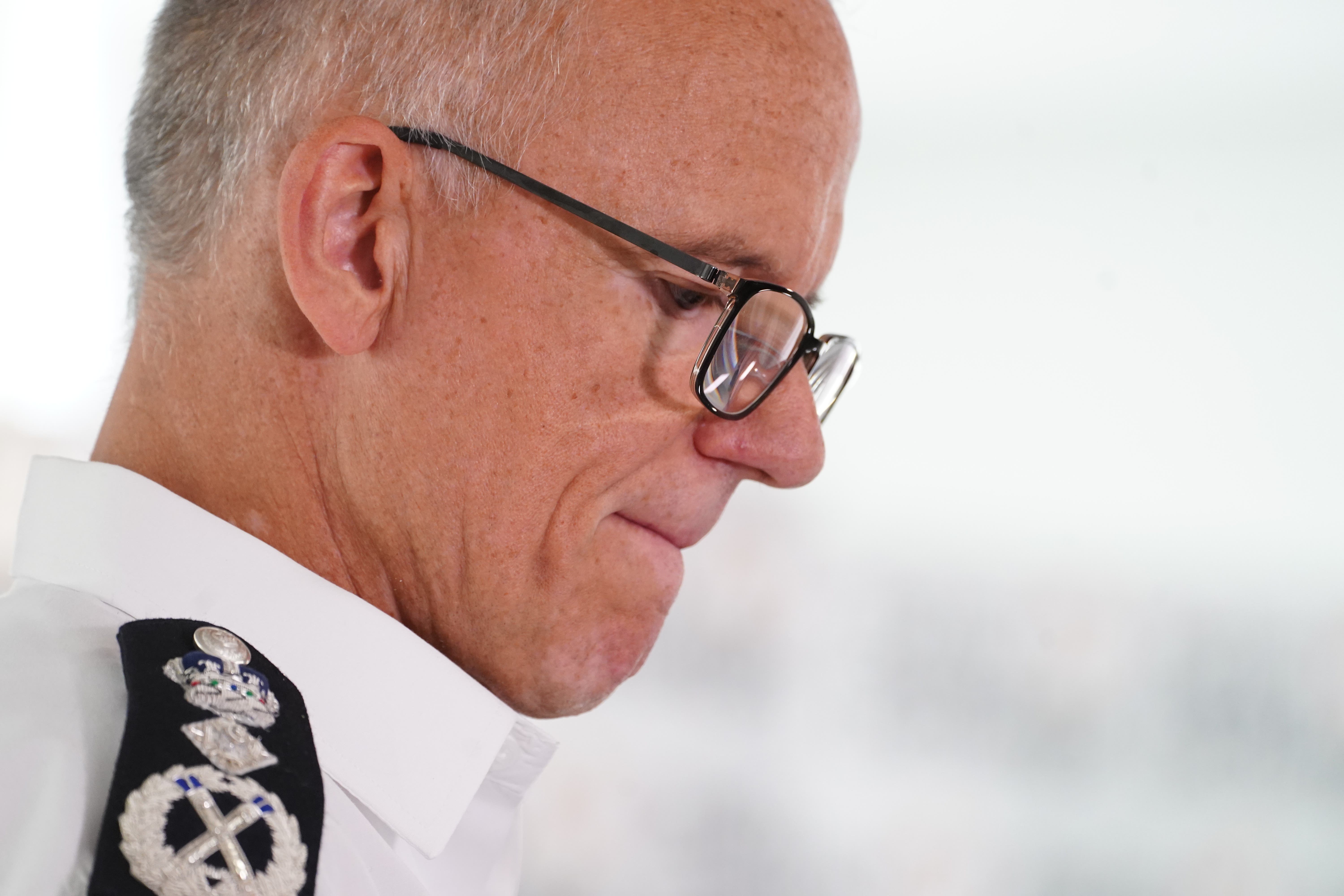London in an ‘awful place’ with Jews ‘scared stiff’, Assembly told
Metropolitan Police Commissioner Sir Mark Rowley also acknowledged difficulties with policing protests since the Middle East crisis.

Your support helps us to tell the story
From reproductive rights to climate change to Big Tech, The Independent is on the ground when the story is developing. Whether it's investigating the financials of Elon Musk's pro-Trump PAC or producing our latest documentary, 'The A Word', which shines a light on the American women fighting for reproductive rights, we know how important it is to parse out the facts from the messaging.
At such a critical moment in US history, we need reporters on the ground. Your donation allows us to keep sending journalists to speak to both sides of the story.
The Independent is trusted by Americans across the entire political spectrum. And unlike many other quality news outlets, we choose not to lock Americans out of our reporting and analysis with paywalls. We believe quality journalism should be available to everyone, paid for by those who can afford it.
Your support makes all the difference.London is in an “awful place” with Jews “scared stiff” and police in the capital struggling with ongoing protests prompted by crisis in the Middle East, the London Assembly has heard.
Metropolitan Police Commissioner Sir Mark Rowley told a policing meeting at the Assembly, attended by London Mayor Sadiq Khan, he is “deeply concerned” about the effects of protests on day-to-day local policing and that he may have to look at asking other forces for help.
He said that, since Hamas terrorists murdered Jews in Israel on October 7, successive weekend protests in central London have been policed by 1,000 officers, then 1,500 and then by 2,000.
Police made around 70 arrests at the protests and almost 100 more for hate crimes, with anti-Jewish hate crime up 14-fold and anti-Muslim hate crime up threefold on last year, he said.
It’s very clear Jewish communities in London are traumatised and upset and sometimes fearful... And that’s an awful place for us to be as a capital city, and we are doing everything we can do to tackle that
Despite claims of bias on social media, he said his officers are taking a “very well-calibrated and very well-balanced” approach to protests and related incidents.
Sir Mark said: “There isn’t a sort of perfect solution to something that’s being driven by an international crisis, but the Met Police will do everything it can do to reassure and protect Jewish communities.”
Conservative Assembly Member Susan Hall said: “OK, I accept that, but I do tell you, in the real world, they are scared stiff at the moment.”
Sir Mark replied: “I’m not disputing that.
“It’s very clear Jewish communities in London are traumatised and upset and sometimes fearful, based on events that happened overseas and the increasing hate crime in London. And that’s an awful place for us to be as a capital city, and we are doing everything we can do to tackle that.”
The police chief was also questioned about the “upset” caused by officers taking down posters of Jewish hostages in Gaza.
He said the incident was “widely misunderstood” and there is a danger people “don’t read the facts” and instead “just get sucked in to debates that are bouncing round on Twitter”.
He said police made a “practical judgment on the day” to remove the posters in a “potentially inflammatory” situation – just as, the week before, Palestinian flags had been removed by police from a Jewish cemetery for the same reasons.
“We are doing everything we can to police without fear or favour,” he added.
But Sir Mark said the mass protests are creating “significant stretch” for his force, with no let-up and more protests planned.
He added: “I’m deeply concerned about the effect this has on day-to-day local policing and the balance of that effort across London.
“And we are starting to look at at what point we need to look for mutual aid from other forces and change our approach to resourcing this to make it sustainable.
“We are enforcing the law to the letter of the law. The law on protest is really clear. It’s very permissive and we work to that letter. Parliament draws the line of the law and we enforce it.”
Sir Mark said he needs more officers but he has 28% less money per head of population for policing than a decade ago.
And recruitment issues mean that thousands of Met officers, rather than being on the front line, are doing jobs that are normally done by civilian staff in other police forces.
Ms Hall suggested the London Mayor should help fund more police officers from his £21 billion annual budget.
Mr Khan said that, for years, the Met had been underfunded by central government and previous Tory mayors, but his administration is now trying to plug the funding gap, recruiting 1,300 more officers.
He said: “I think the evidence from the last seven years is that we have, from City Hall, given the police more resources than the previous two mayors have given the police, for (one) simple reason – I’m pro-police but also anti-austerity.
“Chair, what doesn’t help is politicians who seek to divide communities, rather than bringing together.
“And the chutzpah… the chutzpah of the member to ask the question the way she did, bearing in mind the responsibility she has for sowing the seeds of division, takes some audacity.”